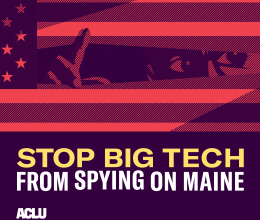Today, Augusta was an exciting place to be!
People from all across Maine came out to testify in a public hearing before the legislature's Judiciary Committee on whether or not concealed weapon permit information should be made available to the public.
We testified in opposition to this bill, based on our desire to strike a balance between personal privacy and the public's right to know.
Below is the written testimony we gave at the public hearing today. If you're curious about the rest of the public testimony from the hearing, you can find it online here - probably tomorrow or the next day.
TESTIMONY OF SHENNA BELLOWS
An Act to Ensure the Confidentiality of Concealed Weapon Permit Holder Information
LD 345 – Ought Not to Pass
Submitted to the
JOINT STANDING COMMITTEE ON JUDICIARY
March 12, 2013
Senator Valentino, Representative Priest and distinguished members of the Joint Standing Committee on Judiciary, greetings. My name is Shenna Bellows, and I am Executive Director of the American Civil Liberties Union of Maine, a statewide organization committed to defense of the Constitution and the Bill of Rights through advocacy, education, and litigation. On behalf of our members, I urge you to oppose LD 345, An Act to Ensure the Confidentiality of Concealed Weapon Permit Holder Information.
For the past two years, I have served on the Board of Directors of the Maine Freedom of Information Coalition. From 2005 to 2012, I served on the Right to Know Advisory Committee. For two years, I chaired the Public Records Exceptions Subcommittee of the Right to Know Advisory Committee. That subcommittee is tasked each year with reviewing a substantial portion of confidentiality exceptions to Maine’s Right to Know laws. As a subcommittee, we frequently wrestled with the competing constitutional interests of privacy and transparency that are the subject of this bill today. On the one hand, the public’s right to know what the government is doing is fundamental to our representative democracy. The achievement of government of and by the people requires that the people know what the government is doing. On the other hand, the government has significant powers to collect personal information about the citizenry and should take great care in dissemination, as well as collection, of that data. The mission of the ACLU of Maine is to defend both these interests of government transparency and personal privacy, and our position in opposition to LD 345 was developed with these constitutional precepts in mind.
The permit to carry a concealed weapon is a government document, representing a decision made by a governmental entity. Under statute, law enforcement has discretion in issuing the permit to determine whether the applicant has “demonstrated good moral character.” Law enforcement also has the authority to determine whether the applicant’s responses to the detailed application are acceptable. Discretion opens the door to potential discrimination. The only way to protect against corruption and abuse of that decision-making process is to ensure that the process is open to the public for review. For example, if I apply for a license to carry a concealed weapon and am denied, the only way to ascertain whether the process was fair is for me to have access to the list of people who were granted such permits in my town. Only then can I know whether my neighbor down the street of the same age and background received a permit when I didn’t. Only then might I discover that no women or no black men were receiving permits. Or, only then might I discover, as happened in South Dakota and Kentucky in two ACLU cases, that no immigrants were receiving permits. In 2011, the ACLU of South Dakota sued when a British citizen was denied the right to carry a concealed weapon in that state. A judge found that to be a constitutional violation, and the law was changed. The public right to know is an important check on any government abuse of power, and in this case, the power to determine who can and cannot legally carry a concealed firearm is significant.
LD 345 would eliminate the only safeguard we have against corruption and abuse in the system of distribution of concealed weapons permits. LD 345 would make it more difficult to ensure that the concealed weapons permitting law was implemented in keeping with Fourteenth Amendment guarantees of equal protection under the law.
On a broader scale, democracy depends on an informed citizenry and government transparency. The debate about gun control and whether people should be able to carry concealed weapons in public, including in this building, is a rightfully emotional debate. But without information about which and how many people are granted concealed weapons permits each year, the public is left to debate on passion and principle without all of the facts. Furthermore, the public cannot make an informed decision about whether they agree or not with the way in which government officials are carrying out the concealed weapons permitting law if all information about its implementation is also concealed.
This bill is not a gun control or gun rights bill; it is a government secrecy bill. If this bill passes, it will further limit our ability to have an informed and well-reasoned conversation about gun rights. Secrecy breeds mistrust, and this bill will certainly undermine the public trust in our concealed weapons law.
In addition to checks and balances against governmental abuse of the concealed weapons statute, freedom of this information yields another vital public benefit: safety. A February Portland Press Herald article pointed to an employer, John Peters of Downeast Energy, who made a public records request in 2011 to see if any of his employees had a concealed weapons permit. The paper reported that: “For Peters, the records request was about workplace safety and peace of mind. ‘I wasn't the only one who wanted to know who was bringing a gun to work. A lot of the people who work here wanted to know, too.’”
Outside of the workplace, there are important public and personal safety reasons that an individual might want to know whether someone in her life possesses a concealed weapons permit. For example, a domestic violence victim might want to check whether her abuser had a concealed weapons permit. It’s important to note that there is no permitting process in Maine for open carry. Anyone who wishes to publicly display a firearm may do so, and members of the public can then make a decision to respond as they think best. But a concealed weapon without corresponding public information about that permit takes that choice away.
The issue of personal privacy is an important one. The ACLU of Maine has consistently advocated for the protection of personal information held by the government, and we do so in this case. We do not advocate for the release of application information to the public. We believe that the permit document itself could be redesigned to contain less sensitive personal information about the permit holder.
In most cases, it is not unreasonable to make some information public, including an individual’s name, address and status as a concealed weapons permit holder. This sort of personal information is already available in divorce records, bankruptcy records, property tax records and many other areas of statute. Hunting and fishing licensing information is open to the public. Making this limited data public does not contribute to identity theft, a real but often misunderstood problem.
Maine’s Freedom of Access laws, title 1, section 402, create some exceptions to the definition of public record for personal information like social security numbers. But the confidentiality of social security numbers applies across the board to all governmental records.
By contrast, LD 345 would create a special exemption to the freedom of access statutes just for firearms. We urge you not to treat concealed weapons permits any differently under the freedom of access laws than you do other types of information like hunting licenses, which are also a certain indicator of gun ownership.
There is one exception to the public release of permit information that should be preserved and possibly strengthened. I referenced victims of domestic violence earlier in my testimony, and as a member of the Right to Know Advisory Committee I advocated in favor of the address confidentiality program for victims. Under the address confidentiality program, the address of a victim of domestic violence, sexual assault or stalking is not contained in any public record. That is vitally important, and while current statute protects the addresses of victims from disclosure, this committee may want to consider adding reinforcing language to title 25, section 2006 to make it clear to all issuing authorities that the name and address of victims of domestic violence, sexual assault or stalking must remain confidential.
Concealed weapons permits have been accessible to the public since 1985. Nothing has changed in Maine except heightened concern and renewed public attention to the debate about gun rights and gun control. Concealment of facts, already in the public domain for 28 years, will not help this debate. To the contrary, LD 345 undermines government transparency, public trust in our concealed weapons law, and the public’s right to know. For these reasons, we urge you to vote ought not to pass.
Not Just a Gun Bill
Related Issues
Related content

Know Your Rights: Electronic Device Searches During Travel
September 3, 2025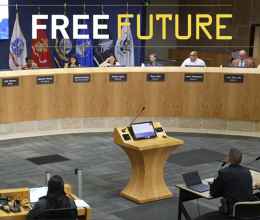
I’m Hearing About More Pushback Against Flock, Fueled by Concern...
August 19, 2025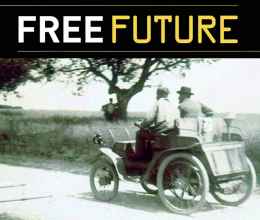
Flock’s Aggressive Expansions Go Far Beyond Simple Driver Surveillance
August 16, 2025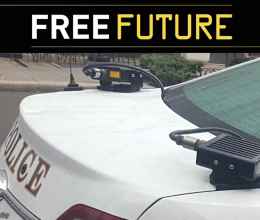
Surveillance Company Flock Now Using AI to Report Us to Police if...
August 7, 2025
AI Could Exacerbate Inequality, Experts Warn
July 23, 2025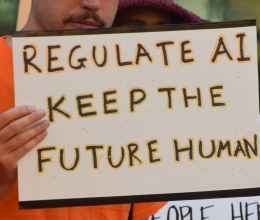
As AI Gains Power, We Must Push for Guardrails to Protect Civil...
July 2, 2025
Weekly Highlights June 23 - 27
June 28, 2025
Weekly Highlights May 5 - 9
May 9, 2025